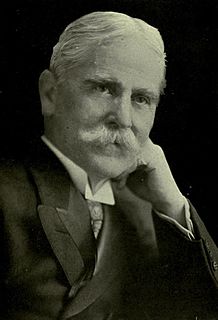A Quote by Anton Chekhov
These people have learned not from books, but in the fields, in the wood, on the river bank. Their teachers have been the birds themselves, when they sang to them, the sun when it left a glow of crimson behind it at setting, the very trees, and wild herbs.
Related Quotes
What is more cheerful, now, in the fall of the year, than an open-wood-fire? Do you hear those little chirps and twitters coming out of that piece of apple-wood? Those are the ghosts of the robins and blue-birds that sang upon the bough when it was in blossom last Spring. In Summer whole flocks of them come fluttering about the fruit-trees under the window: so I have singing birds all the year round.
I don't think that children, if left to themselves, feel that there is an author behind a book, a somebody who wrote it. Grown-ups have fostered this quotient of identity, particularly teachers. Write a letter to your favorite author and so forth. When I was a child I never realized that there were authors behind books. Books were there as living things, with identities of their own.
The rest, with very little exaggeration, was books. Meant-to-be-picked-up books. Permanently-left-behind books. Uncertain-what-to-do-with books. But books, books. Tall cases lined three walls of the room, filled to and beyond capacity. The overflow had been piled in stacks on the floor. There was little space left for walking, and none whatever for pacing.
Association is the delight of the heart, not less than of poetry. Alison observes that an autumn sunset, with its crimson clouds, glimmering trunks of trees, and wavering tints upon the grass, seems scarcely capable of embellishment. But if in this calm and beautiful glow the chime of a distant bell steal over the fields, the bosom heaves with the sensation that Dante so tenderly describes.
A stone lies in a river; a piece of wood is jammed against it; dead leaves, drifting logs, and branches caked with mud collect; weeds settle there, and soon birds have made a nest and are feeding their young among the blossoming water plants. Then the river rises and the earth is washed away. The birds depart, the flowers wither, the branches are dislodged and drift downward; no trace is left of the floating island but a stone submerged by the water; - such is our personality.
He lowered the window, and looked out at the rising sun. There was a ridge of ploughed land, with a plough upon it where it had been left last night when the horses were unyoked; beyond, a quiet coppice-wood, in which many leaves of burning red and golden yellow still remained upon the trees. Though the earth was cold and wet, the sky was clear, and the sun rose bright, placid, and beautiful.
When one speaks of increasing power, machinery, and industry there comes up a picture of a cold, metallic sort of world in which great factories will drive away the trees, the flowers, the birds, and the green fields. And that then we shall have a world composed of metal machines and human machines. With all of that I do not agree. I think that unless we know more about the machines and their use, unless we better understand the mechanical portion of life, we cannot have the time to enjoy the trees, and the birds, and the flowers, and the green fields.
Seek wisdom in books, rare manuscripts, and cryptic poems if you will, but seek it out also in simple stones, and fragile herbs, and in the cries of wild birds. Listen to the whisperings of the wind and the roar of water if you would discover magic, for it is here that the old secrets are preserved.
Oh, I don't object, of course, to cutting wood from necessity, but why destroy the forests? The woods of Russia are trembling under the blows of the axe. Millions of trees have perished. The homes of the wild animals and birds have been desolated; the rivers are shrinking, and many beautiful landscapes are gone forever. And why? Because men are too lazy and stupid to stoop down and pick up their fuel from the ground.
I was terribly sure trees and flowers were the same as birds or people. That they thought things and talked among themselves. And we could hear them if we really tried. It was just a matter of emptying your head of all other sounds. Being very quiet and listening very hard. Sometimes I still believe that. But one can never get quiet enough.


































